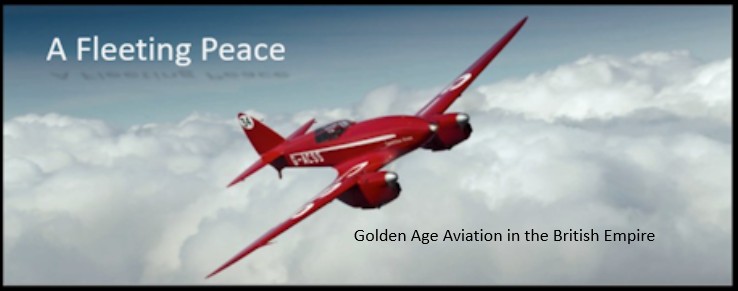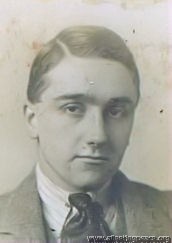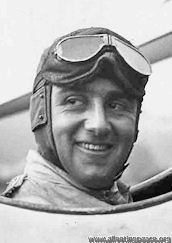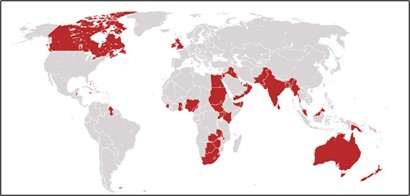|
Flt-Lt David William Frederick Bonham-Carter CB, DFC
|
||
|
Apparently related to Helena CBE (as I gather that "all Bonham-Carters are related"); he was certainly related to Florence Nightingale, though!
b. 22 February 1901, London m. 1927 in London, Joyce A [Palmer] an RAF Officer at Martlesham Heath in 1936, later Group Capt and Station Commander at RAF Waddington in WWII, despite being stone deaf by then; seconded to RCAF and involved in Canada with the Empire Training Plan, then Air Commodore (first President of Newark Air Museum). A member of the Royal Aero Club Racing Committee in the early 1930s. Address in 1974: 'Mariners Cottage', Felixstowe Ferry, Suffolk d. 17 May 1974.
His daughter wrote this article for her Parish Magazine in 2025, and kindly sent me a copy: "An RAF Career: DWF Bonham-Carter, b. 1901, d. 1974 My father‘s mother died when he was still a toddler, so he left London as soon as possible to go to boarding school on the south coast. While there he was excited to see the very first flights of aeroplanes and immediately decided he wanted to fly, not getting any encouragement from his grandmother, who wrote each week to him encouraging him to concentrate on his school studies. She wrote to him on Sunday, July 16, 1911, "I wonder if you’ve seen any aeroplanes lately on their way to Shoreham? I can’t believe that these machines can ever be really useful. If the weather is at-all gusty they cannot start, or should not”. On leaving school in 1920 he got in as a second entry cadet to the newly created college of RAF Cranwell, but he was disappointed by the small amount of flying. From there he was posted to Iraq to continue experimental test flying, and throughout the 1930s he alternated administrative postings and test flying. By 1940, he had crept up the ranks and was considered to be the most experienced test pilot in the UK - possibly in the world. He was a keen photographer, and many of his early aeroplane pictures are now in the London RAF Museum. He was then seconded to the RCAF and moved to Winnipeg in Canada to establish a pilot training station. Great Britain had a huge advantage over the German Air force by having training pilot facilities abroad. Germany could only train in their own country so often faced a pilot shortage. On leaving Canada he was posted as a Group Captain to command the wartime-built Lincolnshire bomber station at Wigsley. His next posting was to nearby RAF Waddington, with two squadrons of young Australians flying Lancaster bombers, with whom he flew on several dangerous raids. His wife only knew if he was going on a raid that day if his English money was left on his dressing table. After several administrative postings in 1949, he was posted to command RAF Brize Norton. As an Air Commodore he flew solo in 1951 and then became the AOC in Hong Kong, This was during the Korean War. He was awarded a DFC in 1945, the citation stating “throughout his career Group Captain Bonham-Carter has set a fine example of courage, skill and dedication to duty”. He was also awarded a CB in 1950 and twice Mentioned in Dispatches. An award he most valued was a 'caterpillar' pin, which was presented by the parachute company Irvin to any pilot whose life was saved by one of their parachutes. His hearing continued to fail, probably because of all his noisy test piloting. He managed with a very primitive hearing aid for many years, but realized his flying days were over so he retired in 1953 after his Hong Kong posting, knowing that attending meetings was beyond his hearing ability, despite all the knowledge about aircraft and flying he had acquired. He retired to Felixstowe in Suffolk, near to the RAF Martlesham aerodrome where he had once been stationed. His home looked across the River Deben to the first in use radar towers built at Bawdsey Manor. He became an active Rotarian, and also a member of the Nightingale Council which administered the money donated by personnel to Florence Nightingale on her return from the Crimea. This was used for the further training and development of St Thomas' trained nurses. He unexpectedly died of a heart attack in May 1974." |

 photo: 1921, aged 20
photo: 1921, aged 20 photo: 1930, aged 29
photo: 1930, aged 29
